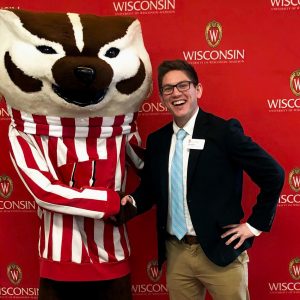UW-Madison’s Josh Bach-Hanson appeared on Wisconsin Public Radio’s (WPR) “The Morning Show” on March 4 to discuss rural higher education in Wisconsin.
Bach-Hanson is a doctoral student with the School of Education’s Department of Educational Leadership and Policy Analysis, and is a researcher with The Student Success Through Applied Research (SSTAR) Lab.

Bach-Hanson tells WPR that there are nine “education deserts” currently within Wisconsin, predominantly located in the northern part of the state. Data shows that most students attend a college within 50 miles of their home, while a rural student may have to travel further than that to attend a university.
One non-traditional student called in to share her story. To attend class prior to the COVID-19 outbreak, she was driving over 50 miles every day, and must balance classes with her job and taking care of her household. Bach-Hanson adds that this is increasingly common.
With rates of enrollment declining for traditional students across the UW System, many campuses must find ways to adapt to increasingly diverse and non-traditional campus populations.
Bach-Hanson suggests that one way to do so is provide unique programming for rural students, like offering blended learning opportunities that combine classroom and online instruction. However, he notes that internet access can be an issues for rural areas.
While it’s difficult to understand what would happen if campuses closed, Bach-Hanson tells WPR that the way forward is to focus on the nuances of what education deserts mean for communities and the demographics of those areas.
Listen to “The Morning Show” segment here.